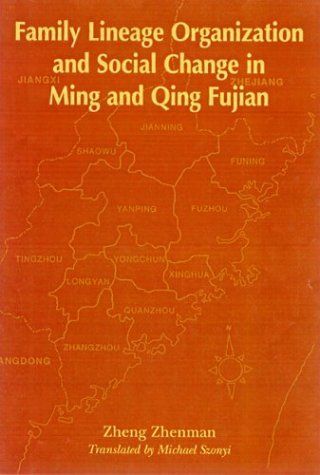
Family Lineage Organization and Social Change in Ming and Qing Fujian
This work is the result of more than a decade of research on the Chinese household and lineage in the southeastern province of Fujian during the Ming and Qing period (1368-1911). It offers new interpretations of the Chinese domestic cycle, the relationship between household and larger kinship groups, and the development of lineage society in south China. Using hundreds of previously unknown lineage genealogies, stone inscriptions, and land deeds, Zheng Zhenman provides a candid view of how individuals and families confronted the crucial issues of daily life: how to minimize taxes or military conscription; how to balance the ideological imperatives of ancestor worship with practical concerns; how to deal with the problems of dividing the household estate. His research leads to an exploration of issues such as the relation of state to society and the compatibility of Chinese culture and capitalism. This complete translation allows access to some of the most exciting new research being done in Chinese social history. Zheng's book draws on important materials largely unknown to Western scholars, comes to novel conclusions about society in late imperial China, and illustrates the importance of the non-Western perspective in studying the history of the world outside the West.